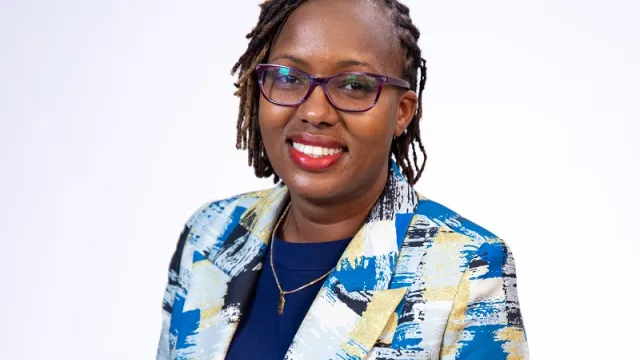The Role of Inclusive Insurance in Empowering Women

The Role of Inclusive Insurance in Empowering Women
Closing the gap between women's and men's economic participation is not just a matter of equality; it is a fundamental driver of business growth, economic development, and improved quality of life for families and communities.
This is envisioned as a necessary path to reducing the gender gap largely enhanced by Kenya’s patriarchal nature that saw men access many job opportunities while women were permanently domiciled in the ‘kitchen’.
Times have changed and Kenya’s women are rising in all spheres of economic advancement. There are many women today sitting on boards and management teams compared to three decades ago, showing the leaps made as a country.
Despite the rising income and increased buying power of women globally, they remain underserved in financial services, particularly in insurance. Addressing this gap, often referred to as the gender protection gap is crucial for achieving true financial inclusion and empowering women economically.
According to the International Finance Corporation's (IFC) SheforShield Report, the insurance industry has the potential to play a significant role in closing this gap, with the opportunity to earn up to $1.7 trillion by 2030 from women alone, half of which would be in emerging economies like ours. However, achieving this requires a concerted effort to tailor insurance products and services to meet the specific needs of women.
The COVID-19 pandemic highlighted the importance of risk management and financial security, particularly for women and women-owned small and medium enterprises (SMEs). The pandemic exacerbated existing challenges, making it even more critical to provide women with access to appropriate insurance solutions.
A 2022 study by Viffa Consult entitled ‘Doing Business In Kenya | Reflection Of Women SMEs 2022 found that only 26 percent of women-led small and medium enterprises boast some form of insurance cover, with only a minority having any business-related insurance.
Underwriters must innovate products that not only address the unique challenges faced by women but also support their entrepreneurial aspirations and growth.
One of the key ways inclusive insurance can empower women is by providing them with the necessary resources to participate more actively in the economy. Access to insurance can mitigate the risks associated with entrepreneurship, encourage investment in education and stable employment, and ultimately contribute to the overall growth of communities.
Moreover, offering insurance services targeted at women makes good business sense. As highlighted by the IFC report, the potential market for women-focused insurance products is vast, representing a significant opportunity for insurers to expand their customer base and increase profitability. By developing and incorporating products that cater specifically to women's needs, insurers can differentiate themselves in the market and position themselves as leaders in financial inclusion.
However, addressing the gender gap in insurance requires more than just developing products; it necessitates a comprehensive approach that includes education, outreach, and partnership. Insurance companies must collaborate with government institutions and community organizations to raise awareness about the importance of insurance and provide financial literacy training tailored to women's needs.
Furthermore, by fostering a gender-inclusive workplace culture, insurers can attract and retain top female talent, further enhancing their ability to serve women as both customers and employees. This includes implementing policies and practices that support work-life balance, provide opportunities for career advancement, and promote diversity and inclusion at all levels of the organization.
In conclusion, inclusion within the insurance industry will play a vital role in empowering women in Kenya and beyond. By closing the gender protection gap and providing women with the tools they need to manage risk and build financial security, insurers can not only drive economic growth but also contribute to broader social and gender equality objectives.
The writer, Tabitha Kihanya, is the GM Alternative Channels at CIC Insurance Group



